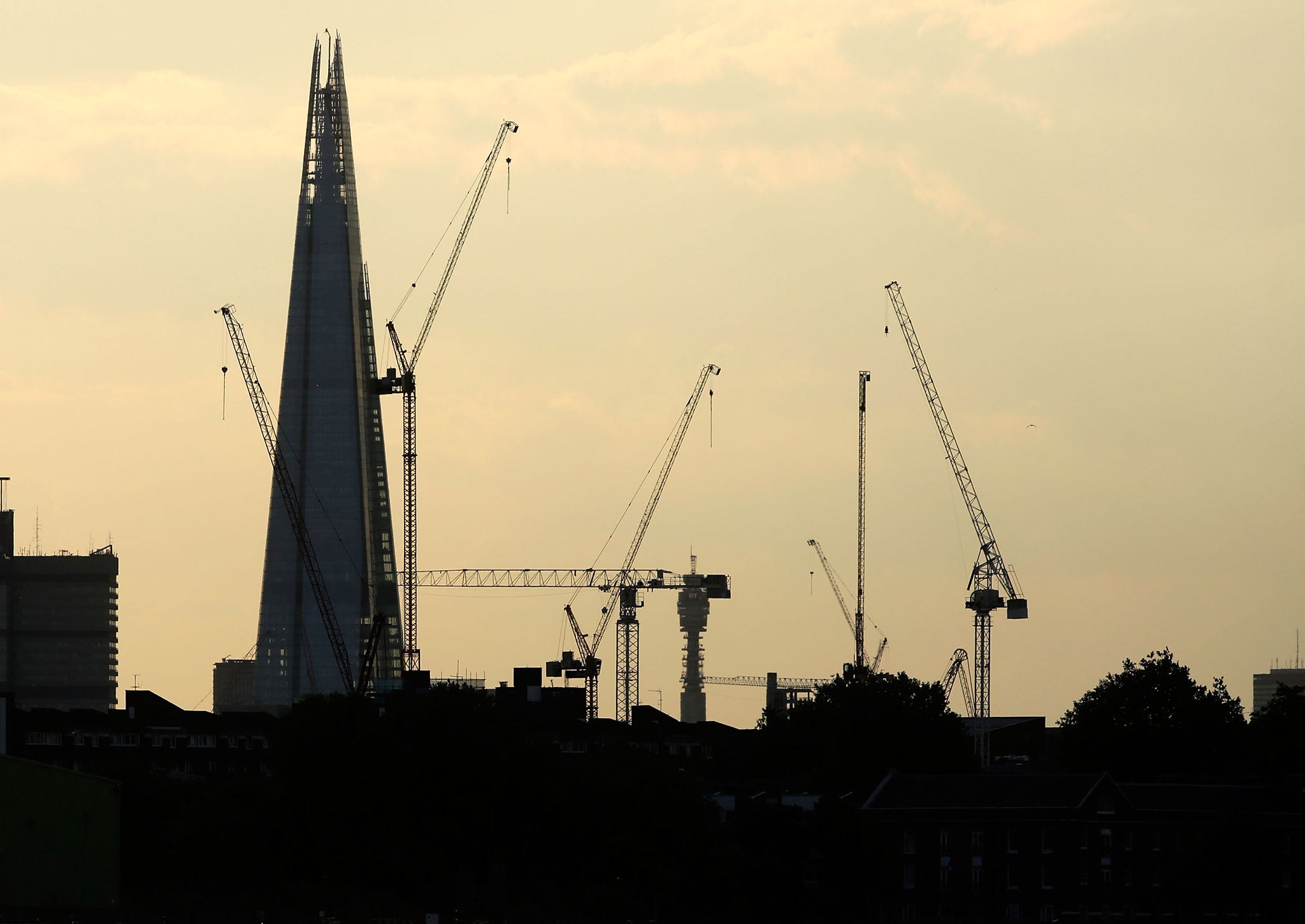If we don't act now, London's housing crisis will plunge us into recession
There are plenty of steps the Government could take to avert the threat

Your support helps us to tell the story
From reproductive rights to climate change to Big Tech, The Independent is on the ground when the story is developing. Whether it's investigating the financials of Elon Musk's pro-Trump PAC or producing our latest documentary, 'The A Word', which shines a light on the American women fighting for reproductive rights, we know how important it is to parse out the facts from the messaging.
At such a critical moment in US history, we need reporters on the ground. Your donation allows us to keep sending journalists to speak to both sides of the story.
The Independent is trusted by Americans across the entire political spectrum. And unlike many other quality news outlets, we choose not to lock Americans out of our reporting and analysis with paywalls. We believe quality journalism should be available to everyone, paid for by those who can afford it.
Your support makes all the difference.The median salary in London, according to the Office of National Statistics for 2011-12, is £23,800. The average property price in London, according to Nationwide, is £400,000. That is sixteen times the average Londoner’s salary. Just 16,800 properties were completed between 2012-13, even though London’s population increased by 108,000 during the same period.
That perhaps explains why, according to Shelter, rent is 59% of the average Londoner’s take home salary. As a matter of urgency, the Government must address these issues. How long will it take for the Government to notice? When rent takes up 80%, 90%, of a Londoner’s salary?
Help to Buy addresses demand, not supply, making affordability, ironically, even worse - average house prices went up an incredible 18% in just one year. The Help to Buy Scheme also gives the short term impression to those coming onto the housing ladder (those usually in their 30s) that they can afford a property. It is no coincidence that this is the age when voter turnout improves, or that a General Election nears.
Generation X and Y cannot blame the Government for this. For the Government have a staked interest in not building substantial numbers of new homes in and around the Capital – their voters, most of this paper’s readers, would greatly suffer a large decline in the value of their properties (which are now often intended to be used for their pensions) if sufficient new housing was to be built – and Generation Y do not vote.
This situation is a direct threat to the economy and a far greater threat than another recession, or even series of recessions. While falls in market confidence can be repaired relatively quickly, a disposable income crisis triggered by high rents or mortgages would last as long, if not longer, as it took for the Government to build enough homes to reduce an individual's rent or mortgage outgoings. Arguably, a recession should be welcomed – if it only meant the Government would respond to falling construction prices by stimulating demand through investing in infrastructure and housing.
The increase in house prices mean the younger among London’s society have less and less disposable income, at a time when employers have ended final-salary pension schemes, mass-unskilled immigration continues to drive their wages down, and the cost of food has risen - while not even taking account for the Government's looming pensions black-hole caused by the 'Baby Boomers' or the repayment of the mountain of Government and student loan debt.
For the sake of London’s future, we must build more homes than net annual population growth in London – so we can start reversing this trend. Build on the greenbelt aggressively, end protected lines-of-sight, remove listed status to all but the most important nationally historic buildings, remove as many of the planning permission barriers as possible (e.g. all but health, safety, and noise laws), and make planning permission fees £0 for all affordable housing developments.
Cut corporate tax rates for house building companies to 0% provided they use the additional funds to build more homes and not to fund a dividend. Force greenfield and brownfield owners, as well as property developers who are not developing their land, in the Greater London area to sell through Compulsory Purchase Orders. Encourage development in inner-London to be high-rise and affordable through subsidies and tax incentives. Introduce foreign-buyers residency tests for buying and increase the income tax personal allowance for Londoners under a certain age.
Bold action is required before the housing crisis ends London’s recession-proof reputation. Disposable income is disappearing, fast, and when it does it will then be too late to avert an even more serious recession than the one we have just left.
Joshua Burge is an economic history scholar at the University of Oxford.
Join our commenting forum
Join thought-provoking conversations, follow other Independent readers and see their replies
Comments